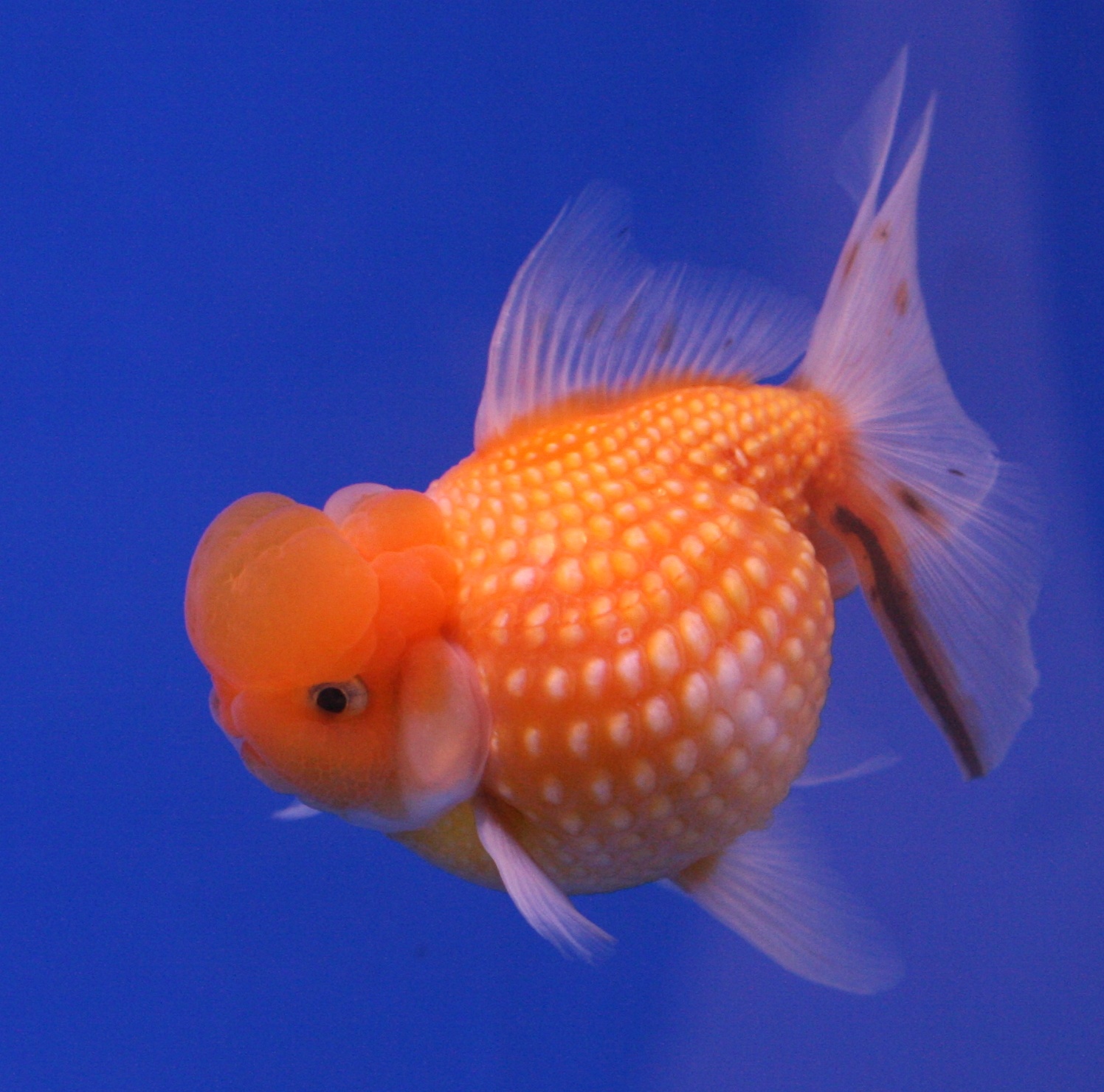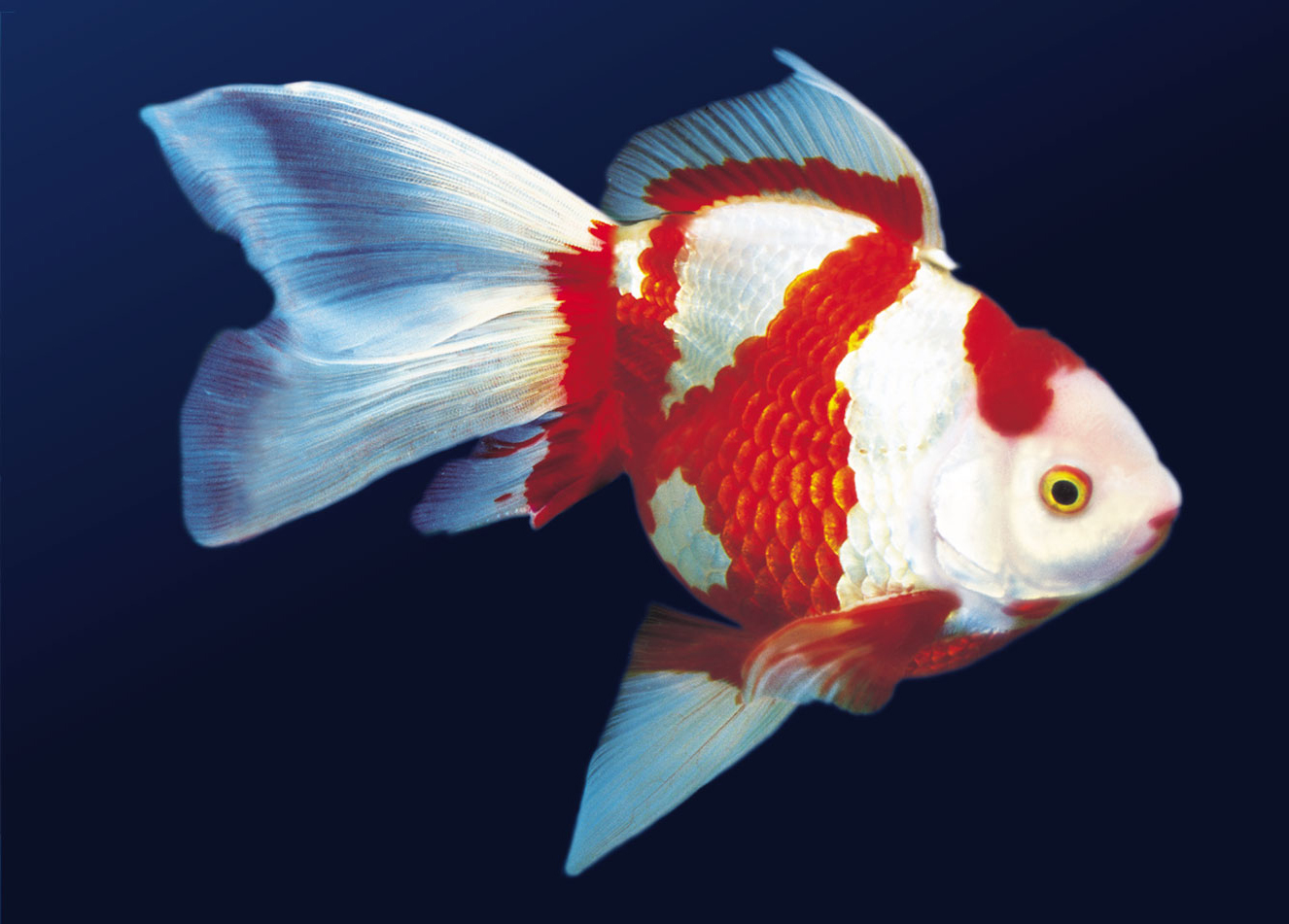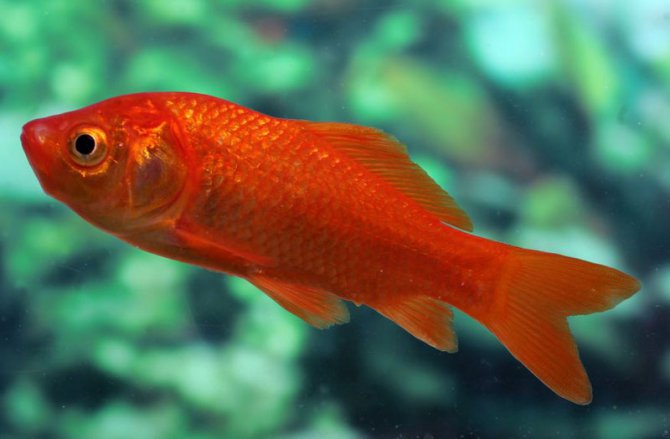
GOLD-FISH.
SOME time during the seventeenth century, about two hundred years ago, Portuguese sailors saw, swimming in the lakes and rivers of China and Japan, a very beautiful variety of fish, which glistened like gold. They captured some specimens and brought them to Portugal. The little fish found the lakes of Europe as pleasant to live in as the lakes of China, and they at once domesticated themselves, and raised their little families, until the European streams became well stocked with these beautiful creatures. They are also found in many brooks and streams in the United States.
The glistening gold-color of these fish made them much sought for as household ornaments, and the demand for them became so general, that establishments were opened for raising them for the market.
One of the largest and most celebrated of these places for gold-fish breeding is in Oldenburg, Germany, where more than a hundred small ponds contain the fish in all stages of growth, from the tiniest baby to the big stout fellow eight and even ten inches long. The little ones are carefully kept apart from larger ones, for the goldfish is a wicked cannibal, and devours its little brothers and sisters, and even its own children, whenever it has an opportunity.
At the same time it is a great coward, and will hide away from fish much smaller than itself that have the spirit to attack it.
The enormous demand for gold-fish is shown by the fact that from the establishment at Oldenburg alone, over three hundred thousand fish are sent to market every year. Their price varies according to their size and beauty, for there are grades of beauty in gold-fish as well as in all other things. They are very pretty household ornaments, and by caring for them, and carefully watching their habits, boys and girls may learn their first lesson in natural history. If kept in a glass globe or aquarium, nothing can be more interesting than to watch them moving about. In any case, fresh water should be given the fish every other day, and if the globe or aquarium be ornamented with rocks and water grasses, the fish should be carefully dipped out once a week and the rocks thoroughly cleansed from all impurities.
In changing the water, the fish should never be subjected to any sudden variations of temperature, as the shock produced by a violent change from water of medium temperature, which is always best, to ice cold, might ruin the whole stock of an aquarium in an instant.
Although the fish draw nourishment from animalcules supplied by the water, and will live a long time without other food, it is advisable to feed them by throwing breadcrumbs or flies and other small insects on the surface of the water. The eagerness with which they dart for them proves them to be welcome. Care should be taken not to scatter more bread-crumbs than will be immediately eaten, for bread sours very quickly, and renders the water impure.


